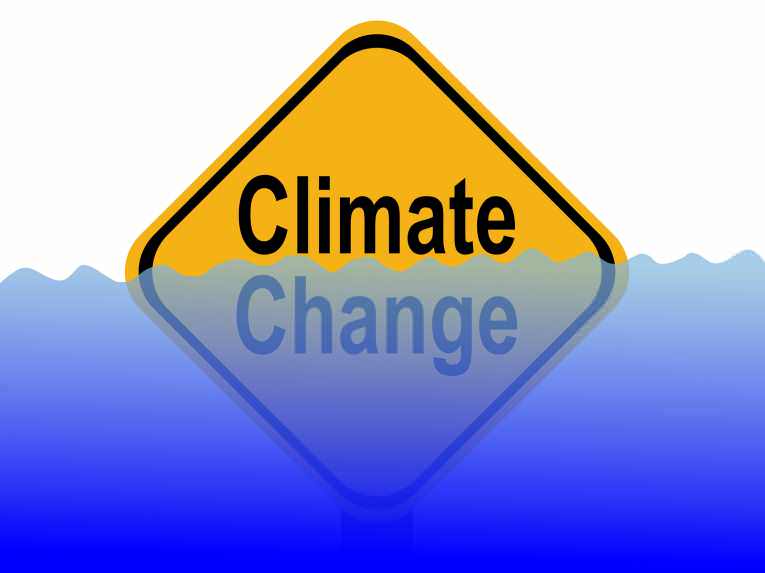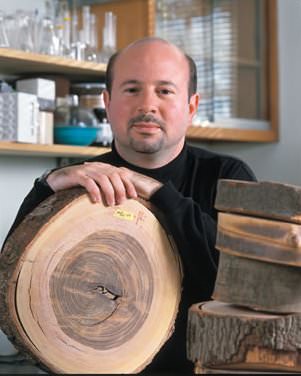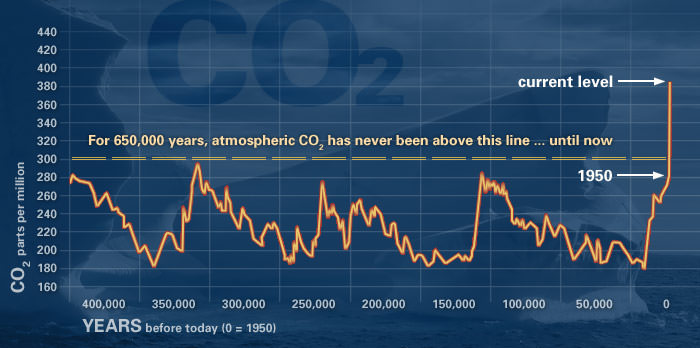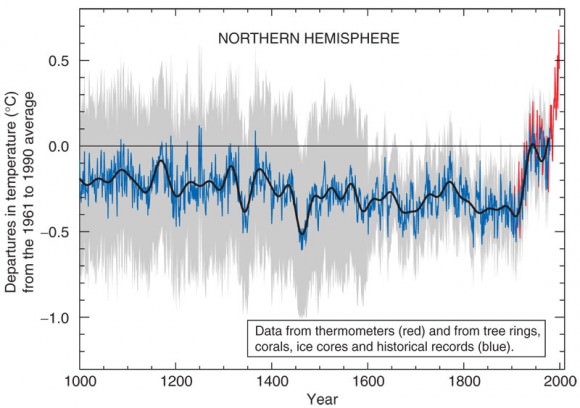A group of 49 former NASA employees from Johnson Space Center have written a letter to NASA Administrator Charlie Bolden, requesting that the space agency refrain from “unproven and unsubstantiated remarks” regarding how human activities are causing global climate change.
“As former NASA employees, we feel that NASA’s advocacy of an extreme position … is inappropriate,” says the letter. “We believe the claims by NASA and GISS(Goddard Institute for Space Studies) that man-made carbon dioxide is having a catastrophic impact on global climate change are not substantiated.”
The letter was reportedly supported by Leighton Steward from the Heartland Institute, an organization known for its stance of trying to cast doubt on global warming science.
“NASA has always been about looking out to the skies and beyond, not burying our heads in the sand,” climate scientist Michael Mann told Universe Today in an email “This is an old ploy, trying to cobble together a small group of individuals and make it sound like they speak with authority on a matter that they have really not studied closely. In this case, the effort was led by a fossil fuel industry-funded (climate change) denier who works for the Heartland Institute, and sadly he managed to manipulate this group of former NASA employees into signing on to this misguided statement.”
Mann added that 49 people out of tens of thousands of former and current NASA employees is just a tiny fraction, and that “NASA’s official stance, which represents the full current 16,000 NASA scientists and employees, is clear if you go to their website or look at their official publications: human-caused climate change is real, and it represents a challenge we must confront.”
NASA has responded to the letter, inviting those who signed it – which includes Apollo astronauts, engineers and former JSC officials – to join the debate in peer-reviewed scientific literature and public forums.
“NASA sponsors research into many areas of cutting-edge scientific inquiry, including the relationship between carbon dioxide and climate,” wrote Waleed Abdalati, NASA Chief Scientist. “As an agency, NASA does not draw conclusions and issue ‘claims’ about research findings. We support open scientific inquiry and discussion.”
“If the authors of this letter disagree with specific scientific conclusions made public by NASA scientists, we encourage them to join the debate in the scientific literature or public forums rather than restrict any discourse,” Abdalati concluded.
As several different people have noted — including former astronaut Rusty Schweickart who was quoted in the New York Times — most of those who signed the letter are not active research scientists and do not hold degrees in atmospheric sciences or fields related to climate change.
Schweickart, who was not among those who signed the letter, said in the New York Times that those who wrote the letter “have every right to state and argue for their opinion,” and climate scientist Gavin Schmidt added in the article that people stating their views is completely legitimate, “but they are asking the NASA administrator to censor other peoples’ (which is something else entirely).”
The letter from the former NASA employees – including Apollo astronauts Jack Schmitt, Walt Cunningham, Al Worden, and Dick Gordon — chides that since “hundreds of well-known climate scientists and tens of thousands of other scientists publicly declaring their disbelief in the catastrophic forecasts, coming particularly from the GISS leadership, it is clear that the science is NOT settled.”
Schmidt wrote previously on the RealClimate website that he certainly agrees the science is not settled. “No scientists would be scientists if they thought there was nothing left to find out…The reason why no scientist has said this (that the science is settled) is because they know full well that knowledge about science is not binary – science isn’t either settled or not settled. This is a false and misleading dichotomy.”
However, he added, “In the climate field, there are a number of issues which are no longer subject to fundamental debate in the community. The existence of the greenhouse effect, the increase in CO2 (and other GHGs) over the last hundred years and its human cause, and the fact the planet warmed significantly over the 20th Century are not much in doubt.”
For further reading:
Letter from former NASA employees
Letter from Waleed Abdalati
Article by Andrew Revkin in the New York Times
Article by Eric Berger in the Houston Chronicle
NASA’s Climate Change website
Real Climate





